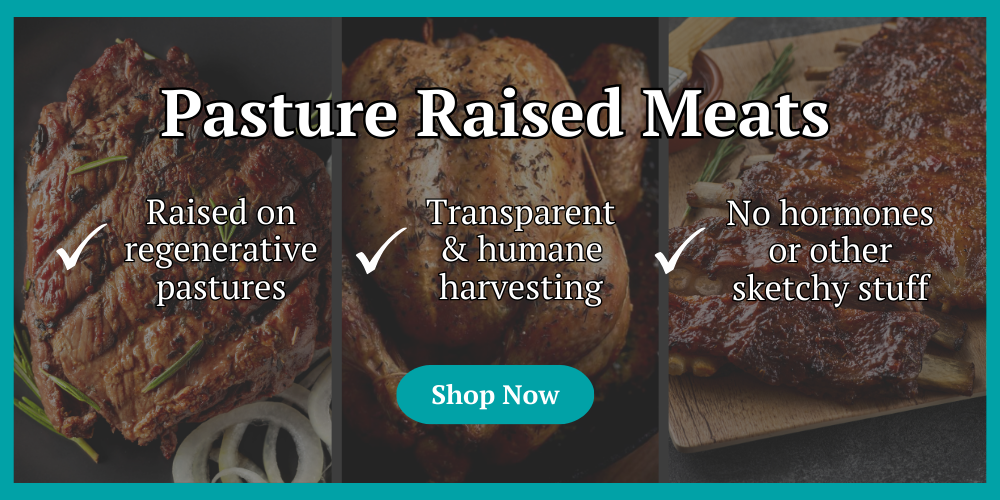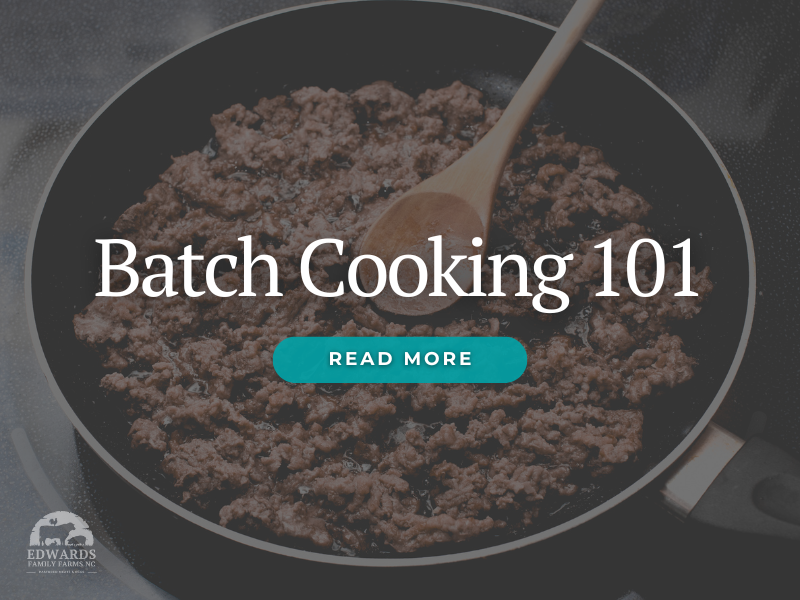The Right Oil for the Job: Cooking Oils 101 for Flavorful, Healthy Meals
posted on
January 3, 2025
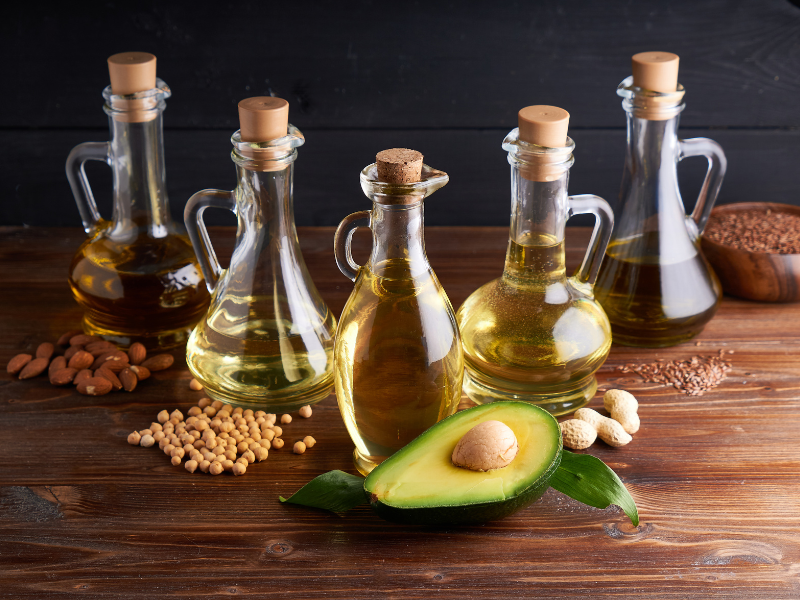
Ever stood in front of a wall of cooking oils, wondering if you’re supposed to grab the olive oil, avocado oil, or that bottle of something fancy you can’t even pronounce?
Don’t worry, you’re not alone. Let’s break down which oils work best for different cooking methods—and how to use them to bring out the best in your pasture-raised meats.
Why Does the Right Oil Matter?
Using the right oil can be the difference between a flavorful, juicy dinner and something dry or, worse, burned.
Oils don’t just keep food from sticking—they help transfer heat, enhance flavor, and even improve texture. Plus, choosing healthy oils means you’re doing your body a solid.
Best Oils for Different Cooking Methods
High-Heat Cooking (Searing, Grilling, Frying)
When cooking something like a juicy pasture-raised pork chop or beef steak, you’ll want an oil with a high smoke point—that’s the temperature where oil starts to burn and get all smoky (AKA when things start tasting bitter).
Top Picks:
- Avocado Oil: High smoke point and mild flavor. Perfect for pan-searing a grass-fed steak (my fave).
- Ghee (Clarified Butter): Brings a rich, buttery flavor and handles high heat well. Use it to fry chicken thighs for crispy skin.
- Refined Coconut Oil: High smoke point, subtle coconut flavor. Great for stir-frying pork or chicken.
Pro Tip: When searing meat, get your pan hot first, then add the oil. Once the oil shimmers, you’re ready to cook. This helps prevent sticking.
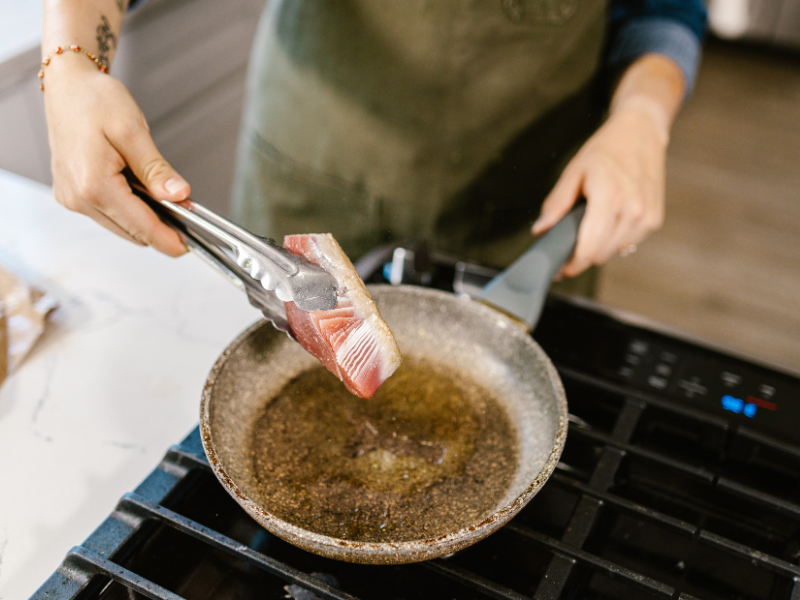
Medium-Heat Cooking (Sauteing, Roasting)
For dishes like roasted pasture-raised chicken or a quick stir-fry, you want an oil that adds a bit of flavor without overpowering your meal.
Top Picks:
- Olive Oil (Light or Refined): Not your fancy extra virgin kind—this version has a higher smoke point but still offers great flavor.
- Sesame Oil: Adds a nutty kick to stir-fries and sautéed veggies. Perfect with forest-raised pork strips.
Pro Tip: For roasting, coat your veggies or meat in oil before placing them on the pan. This ensures even cooking and browning.
Low-Heat Cooking & Finishing (Dressings, Drizzling)
When it comes to adding that finishing touch or making a marinade, flavor is key. No high heat required here, so feel free to bring out the big flavor guns.
Top Picks:
- Extra Virgin Olive Oil: Bold and grassy, perfect for drizzling over grilled pasture-raised beef or using in marinades.
- Flavored Oils: Think garlic-infused or chili oil. A drizzle over roasted chicken adds an extra layer of deliciousness.
Pro Tip: For salads or finishing, mix oil with a splash of acid (like lemon juice or vinegar) to make a quick, tasty dressing.
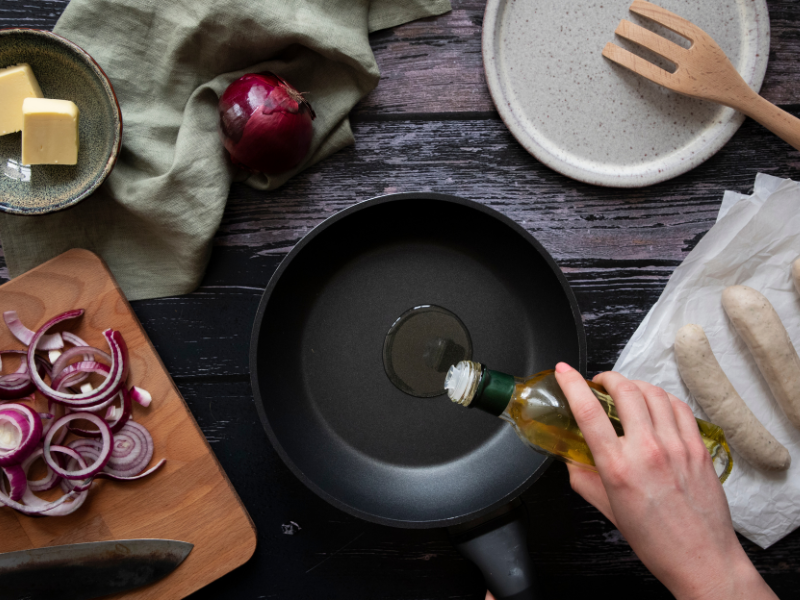
Tips for Cooking Pasture-Raised Meats with Oil
- Don’t Drown It: You don’t need a ton of oil—just enough to lightly coat the surface. This lets the natural flavors of your high-quality meats shine through. Although, if I am being honest, I use a little more oil when I am cooking my chicken to keep it juicy and tender
- Season Early: Toss your meat in oil before seasoning. It helps the seasoning stick better and creates a tasty crust when seared.
- Experiment with Infused Oils: Garlic, rosemary, or chili-infused oils can add a pop of flavor without much extra effort.
Quick Oil Cheat Sheet:
- Pan Searing: Avocado oil, ghee
- Stir-Frying: Refined coconut oil, sesame oil
- Roasting: Olive oil (light), avocado oil
- Drizzling: Extra virgin olive oil, flavored oils
Wrapping It Up
Choosing the right oil can take your meals from good to mouthwatering. With these tips, you’ll know exactly how to bring out the best in every cut of pasture-raised meat you cook.
Ready to put these tips to the test?
Click here to see what’s available at Edwards Family Farms and stock up for your next delicious creation!
